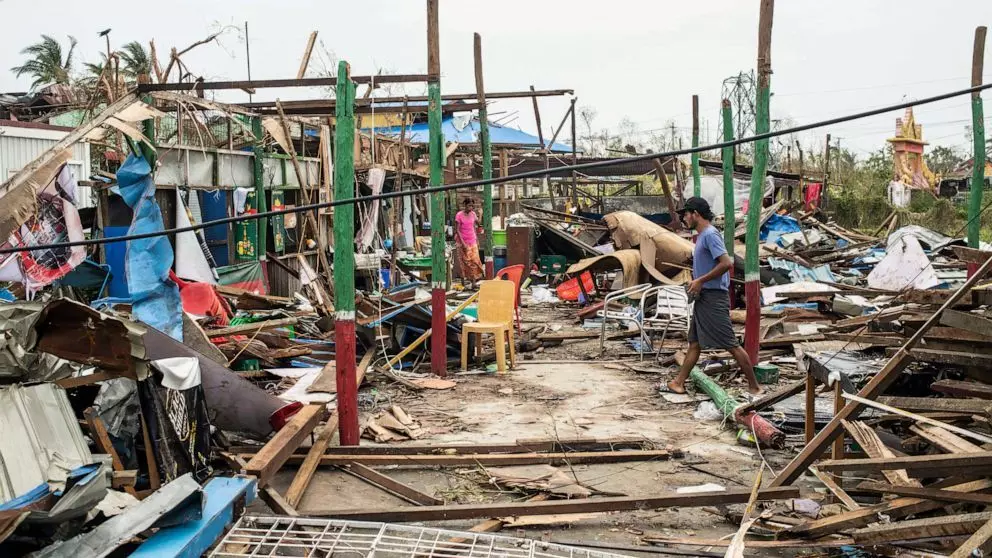
Cyclone Mocha: millions of children at risk in Myanmar, Bangladesh, says UNICEF
text_fieldsUnited Nations: The trail of destruction left by Cyclone Mocha, which tore through parts of Bangladesh and Myanmar, is causing severe disruption to the lives of millions of vulnerable children and families, including many already living in dire conditions, said the UNICEF.
Even as the worst of the storm has passed, the risk of landslides remains high, and further dangers, including waterborne diseases, will likely grow in the days ahead, warned the UN fund on Tuesday.
Cyclone Mocha hit the coastlines of Bangladesh and Myanmar on Sunday afternoon, leaving behind destroyed homes, health facilities, schools, and other critical infrastructure. Many of the hundreds of thousands of people affected are refugees or internally displaced people living in poorly structured shelters in camps and hard-to-reach areas. They rely heavily on humanitarian assistance for food, water, health, education, and protection, UNICEF added as quoted by Xinhua news agency report.
"The areas hit hardest by the storm are home to communities already living through conflict, poverty, instability, and climate and environmental shocks," said UNICEF Executive Director Catherine Russell in a press statement.
The situation is particularly worrisome in Myanmar. More than 16 million people, 5.6 million of them children, were in the path of the cyclone in Rakhine State and locations in the northwest, said UNICEF.
In Bangladesh, home to the world's largest refugee camp in Cox's Bazar, one million Rohingya refugees faced the brunt of the heavy storms, half of them children. The refugee camps rank among the most tightly packed places on earth and are also prone to mudslides, and children live in fragile temporary shelters, UNICEF added.
Cyclone Mocha tied with Tropical Cyclone Fani in 2019 as the strongest storm ever recorded in the North Indian Ocean. Scientists recently found that, while disaster management efforts have reduced the number of deaths during cyclones in recent years, climate change is threatening this progress. They noted that escalating frequency and intensity of storms will pose a far greater risk to Bangladesh in the coming decades, it said.
While Cox's Bazar was spared the eye of the storm, thousands of people have been affected and several temporary shelters, facilities, and infrastructure for refugees have been flooded and left severely damaged, it added.
Together with local partners, UNICEF is pre-positioning and deploying supplies in Bangladesh and Myanmar to ramp up response services, including water and sanitation, child protection, health, nutrition, and education, it said.
With inputs from agencies























